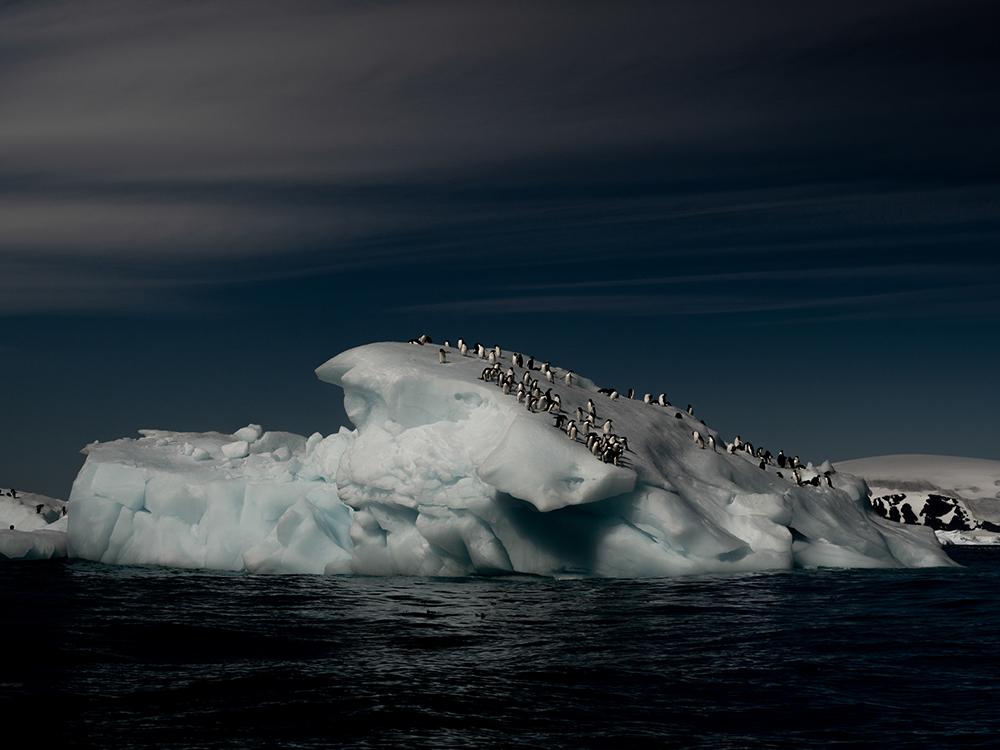
A new exhibition by European-Australian artist Michaela Skovranova, exploring the impacts of climate change in Antarctica, was launched at the Institute for Marine and Antarctic Studies (IMAS) gallery in Hobart last night.
End of the World | Antarctica is a free public exhibition that showcases Michaela’s captivating photography and features her latest short film, End of the World, which premiered at TEDx Sydney in 2020.
“I imagine all the tiny snowflakes that have fallen over many lifetimes to build this masterpiece that is Antarctica – and all the life that depends on it,” Michaela said.
“With the loss of sea ice, we face mass extinctions of wildlife and sea-level rise, which will ripple all across the globe.”
The French Embassy commissioned the exhibition as part of French Australian Research (FAR) in Antarctica, a two-day symposium celebrating Antarctica as an exceptional natural and diplomatic zone dedicated to peace and science.
 Ambassador of France to Australia, H.E. Mr. Jean-Pierre Thébault, said the symposium is a unique occasion for global policymakers, academics, operators and students from the Antarctic community, as well as members of the public, to gather to share, collaborate and debate
Ambassador of France to Australia, H.E. Mr. Jean-Pierre Thébault, said the symposium is a unique occasion for global policymakers, academics, operators and students from the Antarctic community, as well as members of the public, to gather to share, collaborate and debate
“Our aim is to set the stage for an up-to-date bilateral collaboration framework, and enhance Hobart’s status as a global polar research hub for both countries,” the Ambassador said.
University of Tasmania Vice Chancellor, Professor Rufus Black, said the invaluable French-Australian research cooperation was based on shared values and the trust that comes from working together as partners.
“Since 1989, when Australia and France first stood together against mining in Antarctica and established an environmental protection regime for this vital ecosystem, our countries have collaborated on significant research to understand more about the oceans, cryosphere and ecosystems of the Southern Ocean and Antarctica,” Prof Black said.
“Here at the University of Tasmania alone, our IMAS and institute partners collaborate with French researchers on many important projects – from studying iron fertilisation coming from sub-Antarctic islands and using robotic profiling floats to survey the Southern Ocean on five-year missions, to an elephant seal-tagging program spanning 18 years so far, to working together on research projects on physical oceanography, glaciology and sea level rise, paleoceanography and more.
“Since 2007, we have also welcomed 25 French PhD candidates to study with us here at IMAS. Four are with us at the moment, and all of them make valuable contributions to our collective knowledge about the Southern Ocean and Antarctica.
“As part of the research community here at the Gateway to Antarctica, we value our relationship and collaboration with France and we welcome the French Embassy and their guests to Hobart,” Prof Black said.

Images:
Published 17 February 2022